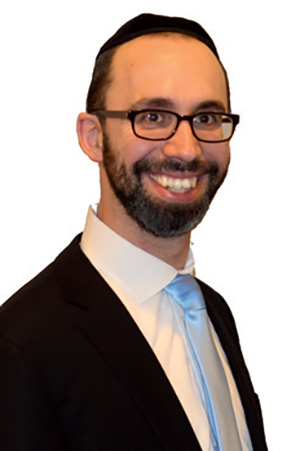
Amos was attending a week-long Arachim Seminar. At the concluding Motzei Shabbos symposium he was one of the few asked to describe his experience at the seminar. The Arachim Seminar helps secular Israelis discover the truth and beauty of Hashem and the Torah. The organizers did not realize they were in for a surprise. “My name is Amos Shabu, and unbeknownst to everyone here I am a journalist for a popular secular newspaper in Eretz Yisrael.”
The room went silent. “I was assigned to experience this seminar and write an exposé on how Arachim brainwashes secular Israelis. I would like to share what I plan on writing for the paper,” continued Amos. The room was abuzz; they couldn’t believe what they were hearing. Amos then read some of his notes from the conclusion of each day. He initially described his belief that he was being brainwashed, but as each day progressed he began to feel the speakers’ assertions about Torah observance were sound, intelligent, and logical.
And then came Shabbos. “The Shabbos experience,” Amos said, “coupled with the entire week, shook me to my core. I suddenly had an entirely new perspective on my life. I felt like I had experienced the various stages of creation. Day one—everything was dark. I couldn’t discern heaven from earth. Day two—I saw a glimmer of light. Day three—the universe started to take form. Each day, I discovered more. By day six I started to understand why Hashem created man. Shabbos was the climax; I felt like I was truly close to Hashem.” Amos said that he now believed beyond a shadow of a doubt that there is a Creator Who oversees and arranges every detail of the world and cares about each individual person. “I have decided,” he said, “to keep the Torah and the mitzvot. And regarding my article, I intend to submit it exactly as I have told it to you here tonight.” This story is told in “Incredible 2” by Rabbi Nachman Seltzer.
In Parshas Bereishis this week we learn how Hashem created the world and concluded Creation with the seventh day, Shabbos. The Gemara Shabbos tells us the world kept expanding until Shabbos, when Hashem commanded it to stop. What was the nature of this expansion? Rav Moshe Chaim Luzzato explains it was the concealment of Hashem’s rule by the earth’s complexity, the “laws of nature,” that made it seem as though the earth ran by itself. The Almighty hid His presence in the world to give man free choice to recognize Hashem. But there had to be a limit to the “laws of nature”; otherwise Hashem’s presence might have been totally concealed! That’s why the Torah describes the seventh day (2:2) in terms of Hashem completing His work and resting. Hashem rested from hiding His presence. Shabbos is a day where Hashem’s presence can be deeply felt.
Amos was introduced to Shabbos and experienced Hashem’s presence for the first time. But this feeling and recognition is not solely reserved for newcomers. We can all have this experience each and every week.
It says in our parsha (2:3) that “God blessed the seventh day and sanctified it…” The Ramban explains that the reason Hashem infused Shabbos with blessing and kedusha is, as the verse concludes, “…because it is the day that Hashem rested from creating…” In resting on Shabbos, Hashem stopped the concealment of His being the Creator, allowing us a heightened state of awareness of His presence on Shabbos.
In Gemara Shabbos, Hashem calls Shabbos a gift, telling Moshe, “I have a precious gift in my storehouse” to give to klal Yisrael: Shabbos. The Sfas Emes says the fact that Shabbos is in Hashem’s storehouse makes it something outside of the regular world. It’s part of Hashem’s “inner sanctum.”
Every week Shabbos allows us to reconnect and re-energize ourselves to regain appropriate focus in our lives. But to fully tap into this feeling it takes preparation and effort. The measure of our weekly spiritual transformation is how we spend our time on Shabbos. Having pleasurable, tasty Shabbos meals, singing Shabbos zemiros (songs) and speaking words of Torah all help our families connect more deeply to each other and to Hashem. Making family time precious, as we do on Shabbos, is an incredible opportunity to listen to each child and hear their opinions and thoughts. It’s a life-changing opportunity.
As a single yeshiva boy in Eretz Yisrael in my younger years I sat at many Shabbos tables. I learned what I liked and what I wanted to avoid at my own Shabbos table. We need to develop our own true enjoyment of Shabbos if we want our children, in turn, to see Shabbos as a treasure. As the long Friday nights of winter approach, we can plan how to capitalize on each moment to help our families soar! Good planning for Shabbos activities, tasty meals, engaging conversations with Torah references and inspiring zemiros can make each Shabbos a true Gan Eden on earth.
Rabbi Baruch Bodenheim is the associate rosh yeshiva of Passaic Torah Institute (PTI)/Yeshiva Ner Boruch. PTI has attracted people from all over northern New Jersey, including Teaneck, Paramus, Rockaway and Fair Lawn. He initiated and continues to lead a multi-level Gemara-learning program. Recently he has spread out beyond PTI to begin a weekly beis midrash program with in-depth chavrusa learning in Livingston, Fort Lee and a monthly group in West Caldwell. His email is rb@ptiweb.org.












